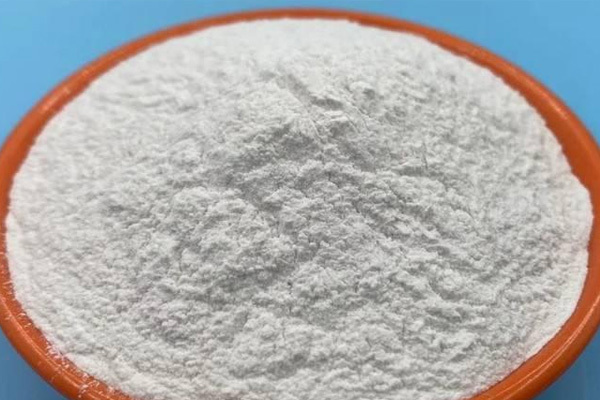Is calcium superphosphate an acidic or alkaline fertilizer?
Release Time:
2024-09-06 14:00
In agricultural production, the acidity and alkalinity of fertilizers are crucial to the soil and plants. Different types of fertilizers can adjust the soil's pH, thus affecting the plant's growth environment and nutrient absorption. Heavy calcium (heavy calcium carbonate), as a common fertilizer component, is usually used to adjust soil acidity, but its properties and usage often spark discussion. So, is heavy calcium an acidic or alkaline fertilizer?
Chemical Properties of Heavy Calcium
First, to understand the acidity and alkalinity of heavy calcium, we need to start with its chemical properties. The main chemical component of heavy calcium is calcium carbonate (CaCO₃), which belongs to calcium salts. Calcium carbonate has poor solubility in water, but it reacts in acidic environments to produce carbon dioxide and water. The reaction equation is as follows:
CaCO₃ + 2H⁺ → Ca²⁺ + CO₂↑ + H₂O
From this reaction, it can be seen that calcium carbonate can react with acid to neutralize acidity. Therefore, heavy calcium is essentially an alkaline substance that can adjust the soil's pH, making the soil tend towards neutral or alkaline.
Application of Heavy Calcium as an Alkaline Fertilizer
Given the alkaline nature of heavy calcium, it is widely used in the improvement of acidic soil. In some areas with severe soil acidification, crop growth is often inhibited by the acidic environment. In this case, applying heavy calcium can neutralize free acids in the soil, increase the soil pH, and thus improve crop growth conditions.
1. Improving Acidic Soil
In southern China, due to the humid and rainy climate, alkaline ions such as calcium and magnesium in the soil are easily leached, leading to more severe soil acidification. The high concentration of hydrogen ions (H⁺) in acidic soil inhibits the absorption of nutrients by plants, especially calcium, magnesium, and potassium ions, which directly affects crop yield and quality.
In this case, applying heavy calcium can effectively neutralize acidic substances in the soil, raising the soil pH to a range suitable for plant growth (usually 6.0-7.5). By improving soil structure and increasing the effectiveness of nutrients, farmers can obtain higher yields.
2. Long-term Regulation Effect of Heavy Calcium
In addition to short-term acid-base neutralization, heavy calcium has another significant characteristic: its slow-release property. Calcium carbonate dissolves slowly in the soil, meaning its effect on regulating pH lasts longer. This characteristic makes heavy calcium a relatively long-lasting soil amendment, reducing the need for farmers to fertilize frequently.

The Combination of Heavy Calcium and Modern Agricultural Development
As global agriculture transitions towards efficient, green, and sustainable development, the application of heavy calcium is also gradually changing. Modern agriculture not only pursues increased yields but also focuses on environmental protection. Under this trend, the alkaline regulation effect of heavy calcium is closely related to environmental protection.
1. Reduce Fertilizer Use, Protect the Ecosystem
Modern agriculture emphasizes reducing the overuse of chemical fertilizers, as excessive fertilizer use can lead to soil compaction, groundwater pollution, and greenhouse gas emissions. Heavy calcium, as a natural mineral, not only effectively improves acidic soil but also does not pollute the environment like chemical fertilizers. It plays a positive role in improving the soil environment and reducing reliance on chemical fertilizers.
2. Promoting the Development of Organic Agriculture
Organic agriculture is one of the important trends in current agricultural development. Its goal is to produce crops in an environmentally friendly way, reducing the use of chemicals. Heavy calcium, as a natural alkaline substance, can help organic farms improve soil acidity problems and promote healthy crop growth. At the same time, its slow-release properties and environmentally friendly characteristics make it an ideal choice for organic agriculture.
Limitations of Heavy Calcium Application
Although heavy calcium has wide applications in agriculture, its use also has some limitations. First, heavy calcium is suitable for regulating acidic soil, but using it in alkaline or neutral soil may cause the soil pH to be too high, which is detrimental to plant growth. Therefore, when applying heavy calcium, farmers need to use it rationally according to the actual pH of the soil.
Second, heavy calcium has low solubility. In arid areas or where water supply is insufficient, its regulating effect may not be obvious. In this case, other alkaline substances, such as lime, may need to be combined to regulate soil pH.
Heavy calcium is a typical alkaline fertilizer whose main function is to neutralize acidic soil and improve the plant's growth environment. With the sustainable development of agriculture and the promotion of green agriculture, the application prospects of heavy calcium in soil improvement are broad. Especially in organic agriculture, the environmentally friendly characteristics and long-term effects of heavy calcium make it an important soil regulator.
Looking to the future, with the advancement of agricultural technology and the emphasis on soil health, the use of heavy calcium will become more scientific and precise. Farmers will use soil testing technology, combined with the actual needs of crops, to develop more efficient fertilization plans. As a low-pollution, high-efficiency alkaline fertilizer, heavy calcium will play a greater role in increasing agricultural yields and protecting the ecological environment.
Heavy calcium is an alkaline fertilizer suitable for improving acidic soil. By improving soil pH, heavy calcium helps increase crop yields and quality. In modern agricultural development, the application of heavy calcium will become more widespread and provide support for the development of green and organic agriculture.



